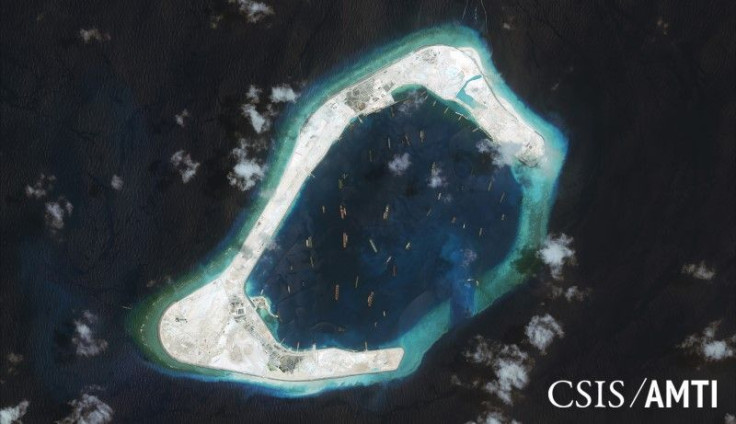South China Sea Dispute 2015: US Vows To Again Sail Naval Ships Through Disputed Territory After Chinese Defense Meeting

The U.S. will continue to conduct naval operations in the South China Sea, U.S. Defense Secretary Ash Carter said following a meeting with his Chinese counterpart, Chang Wanquan, in Malaysia to discuss the two nations’ activities in the region, Reuters reported Tuesday. Tensions over the disputed area that contains the Spratly Islands have escalated throughout the past several weeks, as both China, the U.S. and their respective allies sailed naval ships through territory that China claims as its own and the U.S. recognizes as international waters.
"[Carter] once again reaffirmed that the United States will continue to fly, sail and operate wherever international law allows," a U.S. Defense Department official said after the 40-minute meeting between the two officials Tuesday, as reported by Channel News Asia. The meeting took place to discuss both allegations of Chinese cyber hacking, as well as Chinese construction of artificial islands in the South China Sea.
The conflict centers on a swath of land in the South China Sea, containing the 750 landmasses referred to as the Spratly Islands. Several countries in the region, including Malaysia, Brunei and the Philippines, have made land claims over the territory. China has by far made the largest claim of sovereignty, while seeking to reinforce it by covertly building artificial lands in the region, including a military-grade airstrip.
U.S. Navy plans two or more patrols in South China Sea per quarter https://t.co/2J7OeYXoIY pic.twitter.com/a3iWygzJGJ
— Reuters Top News (@Reuters) November 3, 2015Disputes heightened over the past several weeks after the U.S. sailed a navy ship through the region, defying Chinese sovereignty claims. China retaliated by flying armed jets in drills near the islands Saturday. Carter's remarks reinforced U.S. activity in the region that continued to deny Chinese sovereignty.
"In my opinion, this is when military-to-military dialogue is needed most,” one U.S. admiral told the Wall Street Journal Tuesday, adding, “Sustained people-to-people contact is one of the best ways we can avoid misunderstanding and military miscalculation.”
© Copyright IBTimes 2024. All rights reserved.






















